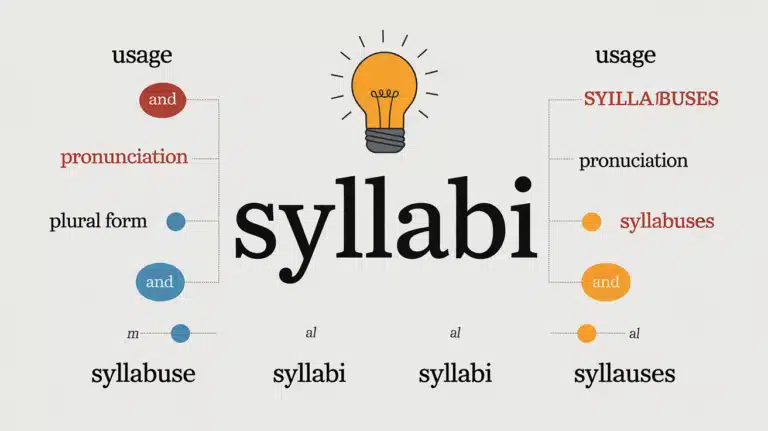Understanding the Plural of Hippopotamus: Which One is Correct?
Ever stumbled over the word for more than one hippopotamus? You’re not the only one! Whether you’re chatting with friends or brushing up on your grammar, the plural of “hippopotamus” can leave even the best of us scratching our heads. Is it “hippopotamuses,” “hippopotami,” or just plain “hippos”? Let’s wade through the confusion and uncover the answer, while learning a bit more about these incredible river giants.
The Singular Hippopotamus:
Before we tackle the plural forms, let’s get acquainted with the singular hippopotamus. The word “hippopotamus” comes from ancient Greek, combining “hippos” (horse) and “potamos” (river). These aquatic animals truly are the horses of the river, spending most of their time submerged in African waterways.
Fun Fact: A hippopotamus can hold its breath underwater for up to 5 minutes!
Hippopotamuses are massive creatures, with adults weighing between 1,500 to 1,800 kg (3,300 to 4,000 lb). Their size, coupled with their aggressive nature, makes them one of the most dangerous animals in Africa.
Plural Forms: A Tale of Two (or More) Options
Now, let’s wade into the murky waters of pluralization. When it comes to the plural of hippopotamus, we have several options:
- Hippopotamuses: The standard English plural
- Hippopotami: A Latin-inspired alternative
- Hippos: The informal shorthand
Hippopotamuses: The English Plural
“Hippopotamuses” follows the standard English rule of adding “-es” to nouns ending in “-us”. It’s widely accepted and arguably the most straightforward option.
Example: “The zoo’s new exhibit features three hippopotamuses from different regions of Africa.”
Hippopotami: The Latin-inspired Plural
“Hippopotami” stems from using Latin pluralization rules for words of Latin origin. While “hippopotamus” comes from Greek, not Latin, this form has gained popularity.
Example: “A group of hippopotami wallowed in the muddy riverbank, seeking relief from the scorching sun.”
Read More About :The Plural of Status: Understanding the Grammar Puzzle
Hippos: The Informal Shorthand
“Hippos” is a shortened form that’s both singular and plural. It’s widely used in casual conversation and wildlife documentaries.
Example: “Did you see those hippos at the watering hole? There must have been at least a dozen!”
The Grammar Showdown: Which Plural Reigns Supreme?
In the battle of hippopotamuses vs. hippopotami, which form comes out on top? The truth is, both are correct in modern usage. However, some style guides and grammarians prefer “hippopotamuses” as it follows standard English pluralization rules.
Here’s a quick comparison:
| Form | Pros | Cons |
|---|---|---|
| Hippopotamuses | Follows English rules, widely accepted | Can be a mouthful to pronounce |
| Hippopotami | Sounds scholarly, historically used | Not technically correct (Greek origin, not Latin) |
| Hippos | Easy to say and write, widely understood | Informal, may not suit all contexts |
Beyond English: Hippopotamus Plurals in Other Languages
The pluralization of hippopotamus isn’t just an English conundrum. Let’s look at how other languages handle these river horses:
- French: hippopotame (singular), hippopotames (plural)
- Spanish: hipopótamo (singular), hipopótamos (plural)
- German: Nilpferd (singular), Nilpferde (plural) – literally “Nile horse”
- Swahili: kiboko (singular), viboko (plural)
This diversity reminds us that language is a living, evolving entity, shaped by culture and usage.
Hippo Talk: Using Singular and Plural Forms in Context
Let’s see these various forms in action:
- Singular: “The hippopotamus emerged from the water, its massive jaws agape.”
- Plural (Hippopotamuses): “The wildlife documentary showcased hippopotamuses in their natural habitat.”
- Plural (Hippopotami): “Ancient Egyptians revered hippopotami as symbols of strength and fertility.”
- Informal (Hippos): “The safari guide pointed out a group of hippos lounging in the distance.”
The Collective Noun Conundrum
When referring to groups of hippopotamuses, we encounter another linguistic treat: collective nouns. The most common terms are:
- A bloat of hippopotamuses
- A crash of hippopotamuses
Example: “We watched in awe as a bloat of hippopotamuses emerged from the river at dusk.”
These colorful terms add flavor to our language and often reflect the characteristics of the animals they describe. A “bloat” might refer to the hippo’s rotund appearance, while “crash” could allude to the thunderous sound they make when charging.
Hippo-sized Impact: The Word in Popular Culture
The hippopotamus and its various plural forms have left their mark on popular culture:
- Literature: T.S. Eliot’s whimsical poem “The Hippopotamus” uses the singular form throughout.
- Music: The Christmas song “I Want a Hippopotamus for Christmas” playfully uses both “hippopotamuses” and “hippopotami”.
- Children’s Media: The board game “Hungry Hungry Hippos” popularized the shortened plural form.
“To the rhinoceros, and the hippopotamus, there is no such thing as Christianity, no such thing as royalty, no such thing as love, nor the stock exchange, nor the Bible, nor the Royal Academy…” – Virginia Woolf
The Great Hippo Debate in the Digital Age
In our interconnected world, the debate over the plural of hippo continues to evolve:
- Online polls often show a preference for “hippopotamuses”, with “hippos” coming in second.
- Memes and social media posts playfully use all forms, sometimes in the same sentence for comedic effect.
- Most spell-checkers and autocorrect systems recognize both “hippopotamuses” and “hippopotami”.
Conclusion: Embracing Linguistic Diversity
As we emerge from our deep dive into the world of hippopotamus plurals, we find that there’s no single “correct” answer. Language is fluid, and usage often trumps rigid rules. Whether you prefer hippopotamuses, hippopotami, or hippos, the key is clear communication.
So the next time you’re faced with more than one of these magnificent creatures, feel free to choose the plural that feels right to you. After all, the hippopotamuses (or hippopotami, or hippos) won’t mind either way!
FAQs
Q: Is “hippopotami” grammatically correct?
A: While not technically correct due to the word’s Greek origin, “hippopotami” is widely accepted in modern usage.
Q: Why does English have multiple plural forms for some words?
A: This often occurs with words borrowed from other languages, reflecting the complex history and evolution of English.
Q: Are there other animals with debated plural forms?
A: Yes, examples include octopus (octopuses/octopi) and platypus (platypuses/platypi).
Q: How do zoologists and wildlife experts typically pluralize “hippopotamus”?
A: In scientific literature, “hippopotamuses” is more commonly used, though “hippos” is frequent in less formal contexts.
Q: Can “hippo” be used in formal writing?
A: While “hippo” is widely understood, it’s generally considered informal. For academic or formal writing, “hippopotamus” or its full plural forms are preferable.







